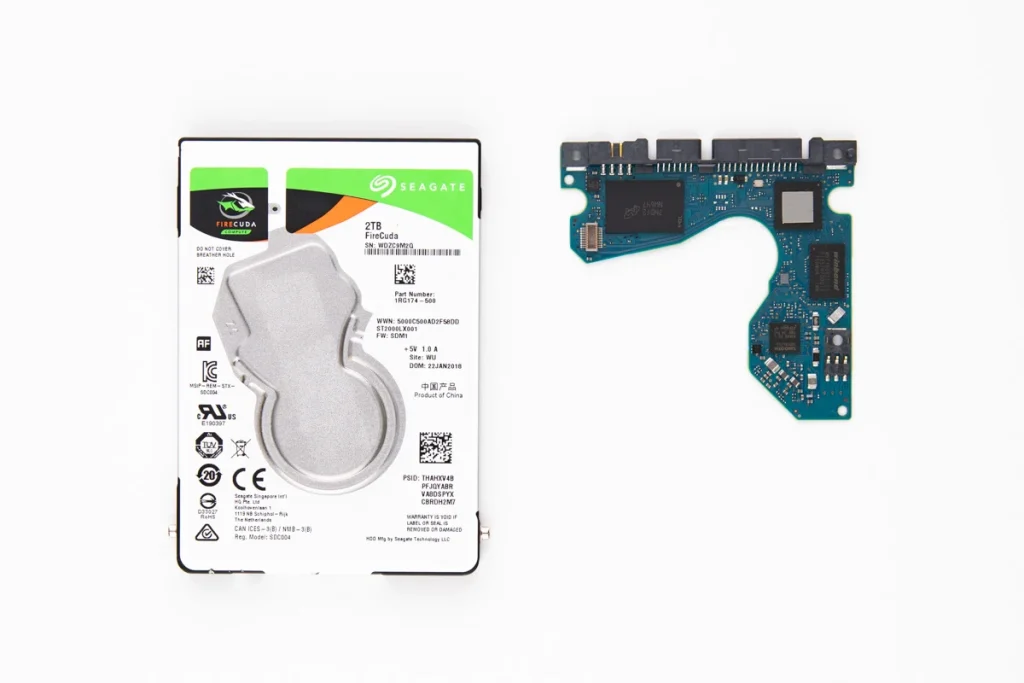
A hybrid drive combines the benefits of a conventional hard disk drive (HDD) with a solid-state drive (SSD), offering enhanced storage performance. It comprises a storage device that combines the features of a conventional hard disk drive (HDD) and a solid-state drive (SSD).
It contains both spinning disks, like an HDD, and flash memory chips, like an SSD. This combination allows for faster read and write speeds compared to a traditional HDD while also offering greater storage capacity than an SSD.
If you experience any form of data loss, please refrain from attempting DIY recovery solutions. Initiating such attempts without the proper tools and environment can lead to further damage, significantly reducing the chances of a successful recovery.
To ensure the safety and integrity of your files, it is crucial to recover data in a dust-free, controlled environment. PITS Global Data Recovery Services offers ISO-certified cleanroom facilities tailored for secure and efficient data recovery solutions. Trust our professional services to handle your sensitive data with the utmost care and expertise.
Hybrid hard drives, despite their advanced technology, are not immune to failure. Recognising the early signs of potential data loss can be crucial for timely intervention. Below are common failure signs associated with hybrid hard drives:
The BIOS does not consistently recognise the drive, indicating problems with the drive’s electronic components or firmware.
If you hear unusual noises like clicking, grinding, or buzzing coming from your drive, it could signal mechanical issues.
The drive reports faulty sectors during disk analysis. This may result in inaccessible files or a failure to copy files.
Files fail to open or display errors, indicating they have become corrupted.
The computer system frequently crashes or freezes, especially during the start-up process.
The appearance of error messages related to disk read and write failures.
Files or folders mysteriously disappear or become inaccessible.
Being alert to these warnings can help in taking swift action to mitigate data loss risks, emphasising the importance of regular backups and professional data recovery services.